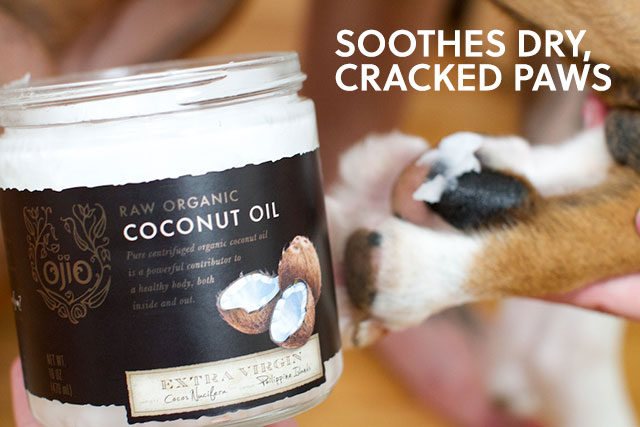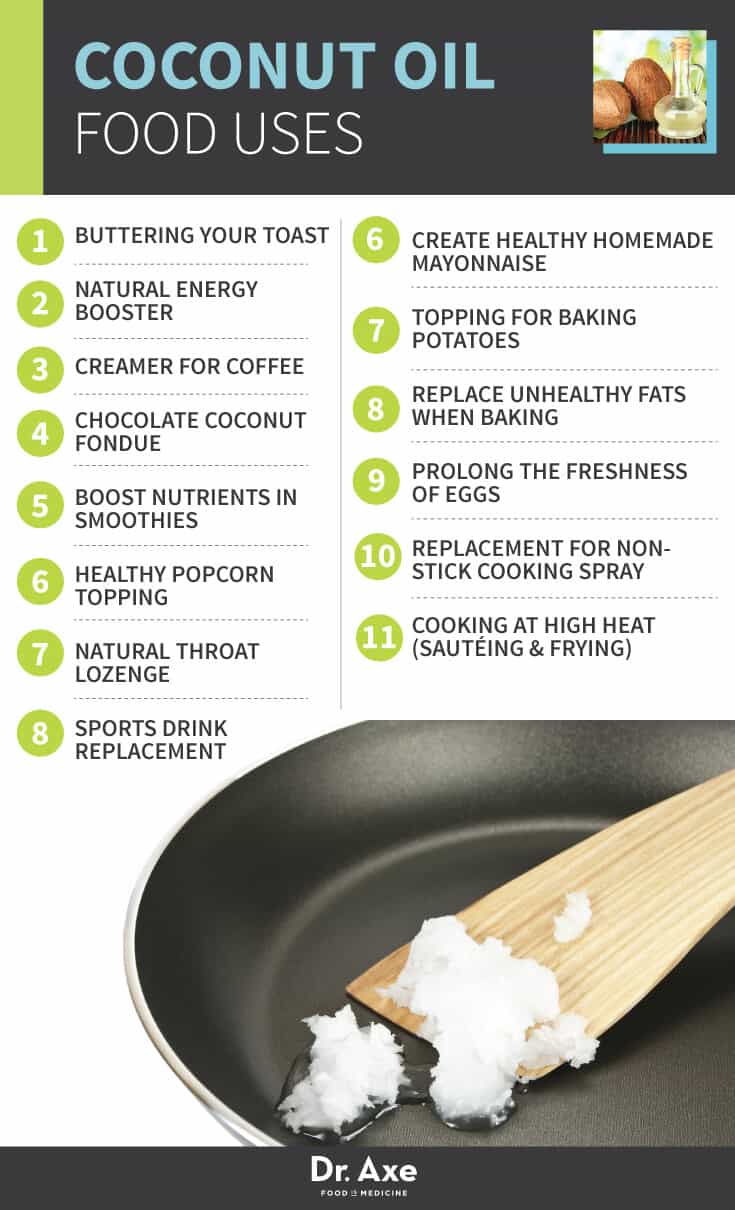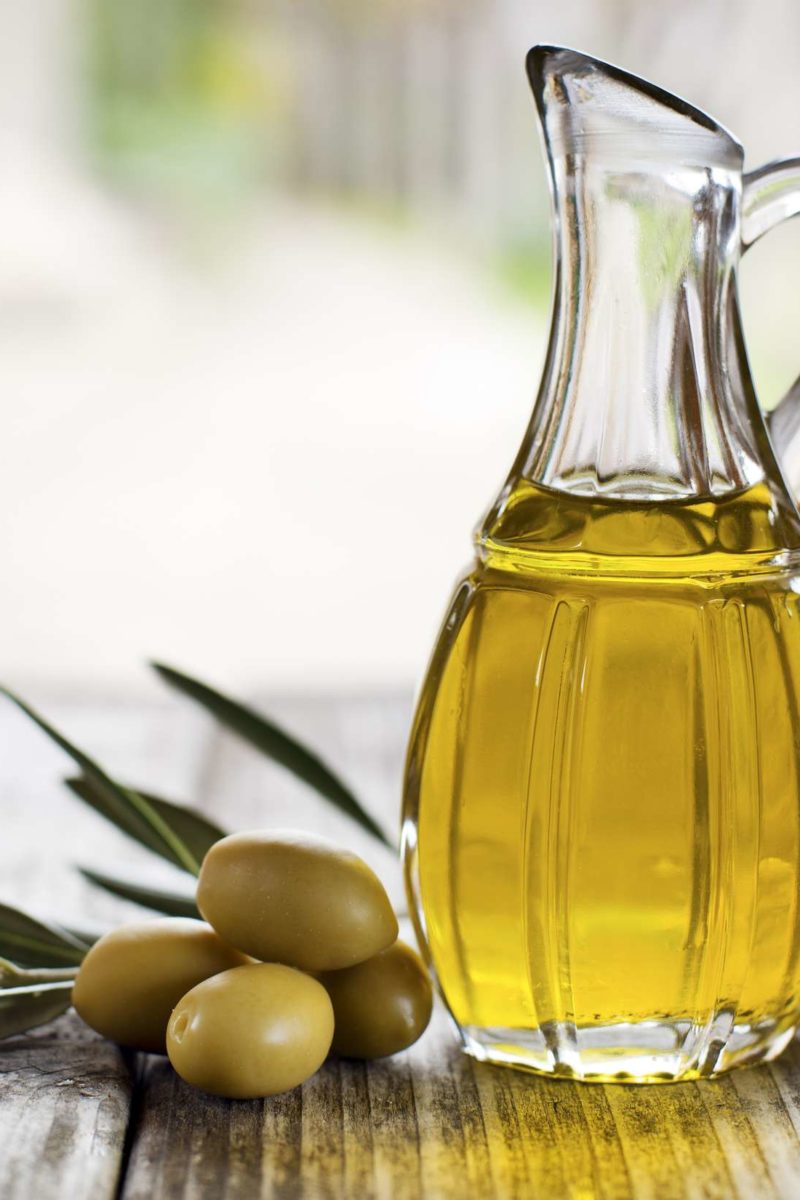When used correctly, facial oils can be great for your skin. However, it's important to remember that oil and water do not mix. When you apply too much oil to your skin, it can actually stop it from soaking up the moisture in other products. Healthy and moisturized skin requires a balance of many factors, and while face oil has many benefits, it should be used in moderation.
Facial oils work well to smooth and soothe skin while keeping essential hydration locked in. However, they do not replace the other necessary ingredients required for a healthy moisture barrier. So while we don't recommend replacing your moisturizer with a face oil, we do suggest using one to supplement an already established skincare routine. All three experts agree that moisturizers can be swapped out for face oils. Says Dr. Marmur, "Oils are occlusive, which means they trap moisture on the skin. If you've never used a facial oil before, we recommend starting with a daytime oil, like Daily Reviving Concentrate.
Can We Use Face Oil As Moisturizer This antioxidant-rich oil stars sunflower oil, tamanu oil, and ginger root essential oil to help revitalize the skin. The lightweight formula also helps protect the skin from free radicals and damaging environmental stressors. Use it in your daily skincare routine for radiant, healthy-looking skin. If you're on the hunt for an oil to add into your routine, Levin recommends squalene, marula, or jojoba oil, since they can help with redness and won't clog pores, given the molecule size. These natural oils will not only condition skin, but they're also packed with essential vitamins.
Gohara mentions mineral oil-based products like Vaseline are also a great choice for most skin types. Oils to avoid in skincare are argan and coconut oil, since the molecule size is larger and therefore may contribute to acne . Where moisturizers sit on the surface of the skin, facial oils go deeper to deliver moisture from the inside out.
"Facial oils are valuable because they contain active ingredients and they are lipophilic (or fat-loving) so they effectively penetrate into the dermis to trap in hydration," Chang says. Depending on your skin type, however, Dr. Zeicher states, "Face oils are emollient-rich products that help soften rough cells on the surface of the skin. "A few drops of an oil is usually enough for the full face. Usually a pearl-sized amount of moisturizing cream is used for the face," says Dr. Zeichner. Both Dr. Zeichner and Holey agree that products should be applied in order from lightest to heaviest in consistency, meaning that you should apply your face oil before applying moisturizer.
As for face oils, they're pressed from plants, derived from nuts, seeds, fruits and other natural ingredients which results in them containing essential fatty acids, vitamins, and nutrients to support healthy nourishment. These natural oils are also able to work to repair and protect the skin barrier and provide lasting nourishment whenever your skin is feeling dry. So while moisturizers provide instant hydration, face oils provide long-lasting moisture with a vitamin-enriched bonus. So oils also work by helping the skin barrier seal everything in, ensuring none of your skin's water content gets lost. Oils give your skin an instant softness and smoothness that can be kind of addictive . But more than that, they're often packed with essential nutrients, fatty acids, and antioxidants.
Plus, adds Chan, they form a protective layer for your skin cells. While they're not the be-all and end-all solution to skin issues, they do their fair share by repairing and protecting your skin barrier, which helps your skin absorb other skin care products. If you're not seeing the dreamy skin you imagined you would from serums and moisturizers alone, an oil might be able to make that happen. Face oils may hold the secret to achieving healthy, radiant skin—no matter what your skin type (yes, even those of you with perpetually oily skin!). Jam-packed with nutrients like vitamin C, essential fatty acids and antioxidants,they penetrate the skin to transform and protect—helping to build a resilient skin layer known as the lipid barrier. Learn the correct way to apply them and how to choose the right oil for your skin type.
The natural moisturizing barrier protects your skin from external threats such as dust, dirt, and bacteria. However, this barrier weakens over time due to dehydration, extreme sun exposure, improper diet, and aging. That is why you need to include facial moisturizing products in your skincare routines, such as serums, facial oils, and moisturizers. Our top-rated Powerful-Strength Vitamin C Serum is one of our best-selling facial serums. This lightweight formula contains 12.5% vitamin C and hyaluronic acid to instantly boost radiance and smooth the skin's appearance. With regular use, it helps reduce the look of fine lines and wrinkles and minimize the appearance of enlarged pores for firmer-looking skin.
This potent formula is suitable for all skin types and can be used morning and night for a healthy-looking glow. During the winter, it's easy to add several steps into your skin care routine, especially if you have dry skin. The goal during those months is to keep your skin as hydrated and moisturized as possible to combat biting winds and freezing temperatures. So when it starts to get warmer out and summer approaches, you might be tempted to strip your routine back down to the basics, ditching additional serums and swapping facial oils for lightweight moisturizers. For people with dry and combination skin types who want to use both an oil and moisturizer simultaneously, Rouleau says that many people actually apply them incorrectly.
Most people know that skin care products should be applied from lightest to heaviest, but not many people actually know what "lightest to heaviest" means. If your skin feels dry or dehydrated, we recommend reaching for richer, emollient facial oils, such as Midnight Recovery Concentrate. This Kiehl's customer favorite contains olive-derived squalane, evening primrose oil, and fragrant lavender essential oil to help hydrate and replenish the skin. The nighttime oil helps reduce the appearance of fine lines and improve skin texture in just one night for softer, more supple skin.
Apply a few drops in the evening before going to sleep for radiant, younger-looking skin by morning. As you can probably guess, facial oils are oil-based liquid formulas designed to be used on the skin. They're typically formulated with non-comedogenic botanical oils and essential oils, which won't cause breakouts or clogged pores. Facial oils often also include plant extracts and antioxidants. These rich, emollient formulas can help moisturize and soften the skin, nourish the skin barrier, and help address some skin concerns, like dryness or dullness.
Look for oils rich in essential fatty acids, vitamins A and C, lycopene, beta-carotene and antioxidants, suggests O'Brien. "If face oils are new for you and you are unsure where to start or how your skin will react, I would suggest a single-ingredient natural oil like rosehip, seabuckthorn and black seed," she says. She specifically sings the praises of rosehip oil as it's high in linoleic acid, very hydrating and absorbs quickly, so it works well for all skin types. For these, Zeichner recommends applying before you moisturize but after—or even instead of—your serum. The other way you can use face oils is as the last step in your routine at night or the second-to-last before sunscreen in the morning.
That way, they're acting as a barrier to keep all the actives in your skin-care products locked into your skin. "Oils can easily penetrate moisturizers, serums, and treatments, but no products can penetrate an oil, which means they need to be applied last," says Dr. Gohara. And don't think that oils are just for dry skin—certain oils, like rose-hip and jojoba, can decrease excess oil in acne-prone skin, while marula and aloe oils can soothe sensitive, easily irritated skin. Our skin naturally produces an oil known as sebum, and while many people think sebum is responsible for a healthy moisture barrier, it's a little more complex than that. Extracted from the seeds of wild rose bushes, rose hip seed oil has seen a surge in popularity and is increasingly found in facial skincare products that tout moisturizing, anti-aging benefits.
You don't want to overuse a treatment oil because it will create a layer over the top of the surface, which then creates more heat to be trapped within the skin. Heat will cause more oil production and allow for bacteria to grow more quickly, ultimately resulting in a potential for increased acne. Face oils have found a permanent spot in the beauty cabinet of a lot of people, and for a good reason. Oils are essentially occlusive – which are moisturizing ingredients that lock in moisture in the skin keeping it supple for longer.
That's not all, facial oils can help with acne, dryness, pigmentation, dryness and so much more. Based on your skin type and concern, choose the facial oil that works best for you. For even bigger benefits, nutrient-rich oils containing antioxidants and fatty acids can also help fend off environmental stressors, giving you radiant skin with a beautiful, natural glow. Herbal extracts add remarkable skin-beautifying and skin-soothing effects. Every face oil has a different formulation, weight, and absorption rate, making some better suited for certain skin types and concerns than others. Castor oil and grape-seed oil, for example, decrease excess oil on acne-prone skin, while coconut oil and avocado oil act as incredibly rich moisturizers for dry skin.
All skin types can benefit from adding serums and oils to their routine, but you have to find the right ones for your skin. Because each serum is so unique, feel free to mix and match according to your specific skin's needs. For example, adding a Clarifying Serum and Brightening Serum to a problem skin routine can simultaneously clear up acne and fade the marks they leave behind. You may even opt for a boost of hyaluronic acid, like Hydration Station, which can be used alone or mixed into other skincare. Turns out, slathering oil on oily, acne-prone skin can actually be a good thing, says Dr. Wexler. Oftentimes, people break out not because of they have naturally oily skin, but because their skin barrier is dry, damaged, and inflamed from a regimen of harsh acne products.
That damaged skin barrier then overcompensates by producing even more oil, which can clog pores and trigger breakouts. Serums, slather on a moisturizer packed with ingredients like hyaluronic acid and ceramides, which your pores will drink right up. "Oils are really better at sealing in moisture due to their occlusive nature—they prevent the evaporation of hydration from skin to the environment," explains Dr. Nazarian.
Thanks to the fact that oils are emollients, they'll create a barrier on your skin to lock in all that hydrating goodness from your moisturizer. For example, where should oil go in your skin-care routine? Except that every day in beauty forums and on Instagram, people are debating it.
The idea that your products should go on "thinnest to thickest" needs to go home, it's drunk. Or understand that their creamy moisturizer containing hyaluronic acid is in fact thinner, molecularly speaking, than their runny rosehip oil? Repeat after me; oils will never be serums and oils should always be last. This rich botanical facial oil is a daily moisturizer that contains a well balanced blend of plant oils in order to provide a broad spectrum of nourishing vitamins, minerals, and fatty acids for your skin.
These oils contain properties that act to regenerate skin cells, heal, prevent wrinkles, improve skin elasticity, and balance oil production. Coconut oil is easily absorbed into the skin and is known to have many health benefits, including those from vitamins E and K, as well as its antifungal and antibacterial properties. Along with cocoa butter, coconut oil is likely to cause breakouts. "In general, coconut oil is a great option for almost everybody, except if you have oily skin and you're acne prone, I would not use it on the face," Katta says.
In astudy published in the journalDermatitis, researchers found coconut oil was better than olive oil at moisturizing skin when used in a carrier. Remember to look for cold-pressed, unrefined coconut oil for your face or skin care. This oil is suitable for oily, dry, combination and normal skin types and can be used as a facial and body oil. Ingredients such as argan oil work to nourish and protect the skin, while the CBD extract acts as an anti-inflammatory. Facial oils are best known for their hydrating properties.
In essence, the oils lock in moisture and protect the skin from the elements. Since hydration is equivalent to healthy skin, oils can even provide some anti-aging benefits. Facial oils are the skincare products for luxurious-feeling, smooth skin. Adding this extra step into your skincare routine is certain to make your skin bright and glowy and - the best bit is - face oils are easy to apply and don't require much effort - yes!
Here are our 10 top tips for using facial oils in your skincare regime. If you're doing everything you can to combat dry skin, consider adding a facial oil to your routine. "Facial oils are a good way to complement everyday skincare products for an extra moisturization boost, especially during dry winter months," says Danusia Wnek, a chemist in the Good Housekeeping Institute Beauty Lab. "The benefits include leaving skin feeling soft, smoothing texture, and improving radiance."
A good way to think of it is that oils alone are not moisturizers (and you shouldn't use them as such). Instead they should accompany traditional moisturizing ingredients like hyaluronic acid and glycerin. "A good moisturizer has to deliver both water and oil," says aesthetician Ling Chan.
"Your cells drink the water while oils stay on the outside of the cell for protection and lubrication." An oil is actually integral to healthy skin, since it acts as the sealant that keeps moisture in. Without it, moisture just leeches out until the next time you apply cream. While this isn't necessarily going to wreck your skin, it's definitely not ideal—and it becomes a bigger problem in dry winter weather. Face oils are different from face serums, the latter of which are meant to treat specific skin concerns with various active ingredients. "An oil is made up of, well, only oil," Boone explains.
"Oil sits on top of the skin and is best applied last in your skin care routine," she notes, whereas serums should be applied before moisturizers and after toner — but more on that later. What makes an oil an oil are the ingredients, not necessarily the label. Argan oil falls in the middle of the spectrum—it's not too heavy, not too light—making it perfect to use on all skin types.
It's packed with omega fatty acids, vitamin E, and linoleic acids, all of which work to lightly moisturize your skin, soften dry patches, and even reduce acne. "It's essentially nature's protective, nourishing superfood for your skin," Maran says. Hough face oils offer several skin-boosting properties, they're best used in combination with a moisturizer.
Applying a moisturizer before a facial oil allows skin to soak up the nourishing ingredients in your cream. Your facial oil will help keep that hydration in and protect your skin from outside irritants. While face oils should not be used in place of moisturizers, they can help supplement them and improve the effectiveness of your skincare routine to boost skin hydration and give you healthy-looking skin.
A question like "Why is my skin so dry even when I moisturize? " might've crossed your mind and you might be thinking of adding a face oil to help with the dryness. While face oils have moisturizing benefits, does that mean you can give up your night cream altogether? At the Kate Somerville Skin Health Experts Clinics in Los Angeles and New York, we talk to people every day about their specific skin concerns. Below, our Skin Health Experts address the differences between popular moisturizing ingredients and how they affect different skin types. Oils, on the other hand, help to lock in the moisture added by the moisturizer.
If you have very dry skin or just want to keep your skin as hydrated as possible, then facial oils are the way to go. Although optional, you'll see a visible difference in your skin's health and glow. They both moisturize the skin, so how does it matter, right?


























